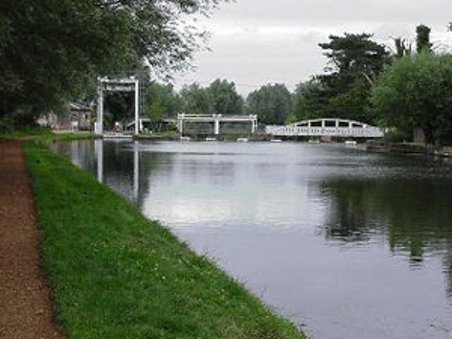Anglian Water has admitted it killed fish on the River Cam after years of denying that it was responsible following failures at its sewage treatment works (STW) at Milton in Cambridge.
In July 2013, after a fault at its STW, high levels of ammonia were discharged into the River Cam – a premier coarse fishery – killing large numbers of fish. The licence under which Anglian Water operates allows up to 5 mg/l of ammonia but the discharge reached 19 mg/l.
The Environment Agency (EA), which classed the pollution as Category 1 (meaning it had a persistent and extensive effect on water quality and a major impact on the aquatic ecosystem) collected the remains of hundreds of fish and estimated that many more had been killed. However, the EA later dropped their case against Anglian Water.
Fish Legal’s member club, the Cambridge Fish Preservation and Angling Society, which leases the fishing on the river downstream of the Milton STW, reported long term damage, particularly at Baits Bite Lock where big bream had been caught in the past but whose numbers have declined after the pollution.
After drawn out arguments with the water company, Fish Legal issued the case at Court on behalf of its member.
At the eleventh hour, Anglian Water, which had operating profits of £336.6 million last year, has now admitted that it was to blame for the fish deaths and has agreed to pay the angling club damages for the loss of amenity and loss of income from match fishing. Anglian Water still disputes whether the anglers are entitled to claim for restocking to help the fishery recover and further litigation is expected.
Graham Tweed, President of Cambridge Fish Preservation and Angling Society Ltd (CFPAS) commented: “I am very disappointed that the River Cam pollution claim has taken so many years to conclude, particularly as CFPAS always seeks to work collaboratively with stakeholders.
“CFPAS are hugely grateful to Fish Legal for their professionalism and hard work over the past few years. I sincerely hope that Anglian review their approach in the future to ensure their environmental and community responsibilities are met.”
Justin Neal, Fish Legal solicitor, added: “This is a common situation where the regulator simply didn’t deal with the investigation rigorously enough, giving the utility the impression that it should defend a claim to the bitter end. The utility finally admitted liability but only after enormous amounts of resources and time were ploughed into the case. There is still more work to do as Anglian Water has not agreed that it is liable to pay for restocking.”






